Hey all, and welcome back to my blog. Unfortunately, October has proven to be a month that was just as busy as September, but without the immense progress able to be made on my current project. But, as of this post, I’ll finally be able to more openly talk about that current project and how it might relate to my recent media experiences since I’ve been able to announce my newest game, Our Ephemeral Nights. I wrote about it and specifically the demo in my first Dev Log post, so go and check that out if you haven’t!
Thinking about my current pacing and workloads in all aspects of my life, I think I’m due for some sort of overhaul to my daily and weekly routine, as I’m rarely able to find the time to just sit down and breathe. Part of that is my own mindset, as much of what I need to do isn’t strictly time sensitive, but it’s also difficult to just completely break out of the habits I’ve built. One thing I’ve finally decided to do is to take some time off of work, as I’m just about reaching the cap of the hours I can bank for taking paid time off. Hopefully, this will give some breathing room, as well as allow me to chip away at the things I’ve set out to do.
Also, for those who live in the states like I do, by the time you’re reading this, the election should’ve already finished, with its results made clear and the impeding ramifications looming across the horizon. Although I can’t do much to assuage the fears and anxieties that people might have about the accession of people who only ever preach self-interest, I can at least be here, be myself, and share the experiences I’ve had with media that affirms the more empathetic parts of humanity. I’ve recently become more keenly aware as ever at the disappointment that society can instill by stifling self expression and agency, but that’s also been crucial in tempering the belief I have in the people that do have the capacity to do good. Stay strong out there, folks.
While I wasn’t able to get to as many media offerings as I would’ve liked in October, the month still served a rich medley of experiences, ranging from an emotional and cathartic Solo Live to possibly Dreamwork’s best film to date. Aside from Dandadan, I’ll also be watching Re:Zero’s 3rd season as part of the fall season, but I’ll save that for next month’s post as there’s much to talk about this month. Let’s get right into it.
Starting off, we have another Hololive live experience, one that I dearly wished I could’ve experienced in person, Sakura Miko’s First Solo Live, Flower Fantasista. Travelling out to Japan is a tall ask regardless, but if there’s anything that would’ve sent me packing a trip there in my current hectic life, it might’ve been this. But for the time, I had to settle with watching the live stream from the comfort of my home.
I’d already briefly mentioned that I was a 35P (in case you don’t know, that’s the name of Sakura Miko’s fanbase) in a previous post, but it goes a bit beyond that. My first exposure to VTubers was through Hololive, but it was specifically Sakura Miko’s “Stay Home” clip that got me into the rabbit hole, and subsequently her channel, VODs, and livestreams. I had no idea that it’d domino into so many other things, but I can say that it was the start of many series of events in my life. I’d initially started writing after my unhealthy experiences with VTubers in 2022, so in a way, I probably wouldn’t be here today writing this if I hadn’t been initially exposed to Sakura Miko.
My experience as a 35P has always been that of earnest support, and closest to what I’d see as being a healthy and sincere fan. I’ve always found her to be both intentionally and unintentionally hilarious, as well having a fervent passion for what she does. Having watched Miko for over 4 years now, it’s honestly inspiring to see how far she’s come and the tenacity and kindness she’s shown through her journey as Sakura Miko.
It then follows that I absolutely loved Flower Fantasista, given that it’s essentially a climax that everything “Sakura Miko” has converged to. This live was a resounding and cathartic celebration of all of her personal arcs, as well as a pure expression of who she’s come to embody. There wasn’t a moment in the live that felt disingenuous, and everything from her dancing, singing, in-between quips, words of thanks, and songs themselves was just everything “Miko”. It’s apparent that she put in an immense amount of work into making this live a success, and even more apparent was how much this entire experience meant to her. Thinking about how far Miko has come and how everything’s culminated in such an ocean of cherry blossoms, it’s just utterly inspiring.
It’s fitting that solo lives are often seen as apexes to the Hololive girls’ careers, as there’s a form of expression and significance in the moment that can only really be captured by a solo live. Flower Fantasista was a shining embodiment of this, and while it was a peak in Miko’s time as a VTuber, it’s also surely the start of many more glimmering moments to come. 🌸
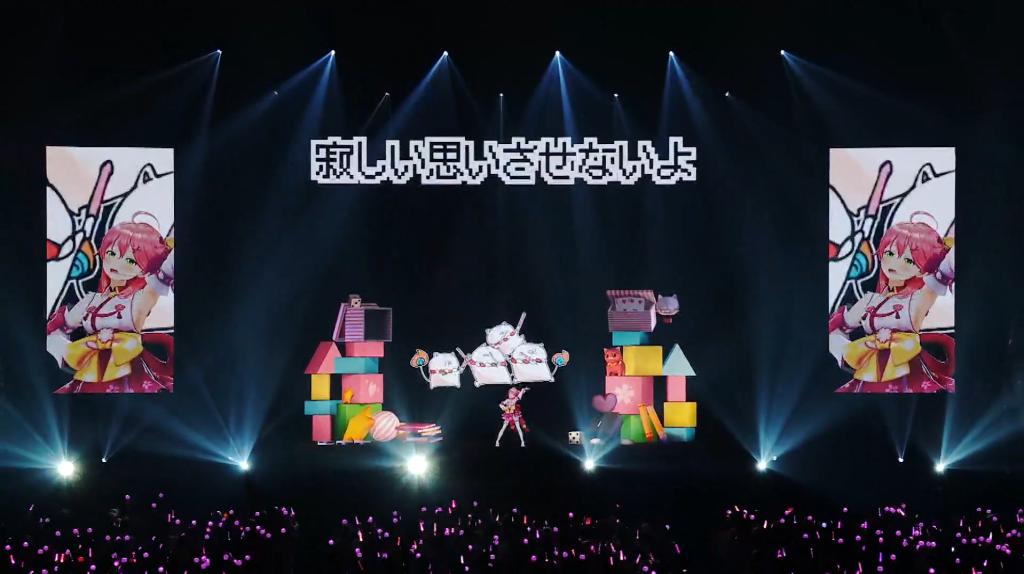
But wait, I’m not done talking about Miko just yet! After her first solo live, she had released the animated music video of her newest original song, Flower Rhapsody, which somehow establishes itself as an equally, or even greater, all-encompassing and cathartic celebration of everything “Sakura Miko.” I’d only started watching Miko when she began to blow up in popularity, so I’d only heard after the fact about her early struggles as a VTuber. But even so, seeing how far Miko has been able to come now makes Flower Rhapsody all the more intimate as a letter to her past self and a resounding affirmation that it’s okay to be herself, with all the hurt but also happiness that might’ve came with that.
Flower Rhapsody is a vulnerable song at times – Miko sings about the loneliness, regret, and embarrassment she felt in her early days, as well as the continued uncertainties that she might feel even today. But it’s only in this acknowledgement and subsequent acceptance of these vulnerabilities that ultimately make Flower Rhapsody as uplifting and inspiring as it is. As Miko says herself, this is her story – her own rhapsody. One that might’ve been filled with hurt, but is one that was also filled with all the joyful experiences and the connections she’s built. It’s a long journey that she’s able to look back with a warm heart and an affirmed “I’m glad to be me”.
Every aspect of this MV just works so, so well in conveying this. The song is great, the lyrics brilliantly captures her feelings, the animation is absolutely beautiful, the direction is phenomenal, all the references are rewarding to recognize, and the build up to showing her solo live as the climax just works on every level. It’s something that’s so life and self affirming, inspiring, and honestly makes me glad that I went down the rabbit hole. I never would’ve thought that I would find something VTuber related, among everything else, that resonates so closely to my media sensibilities, but here I am, certain to stay in the capacity that I can. Keep shining and being yourself, Miko!
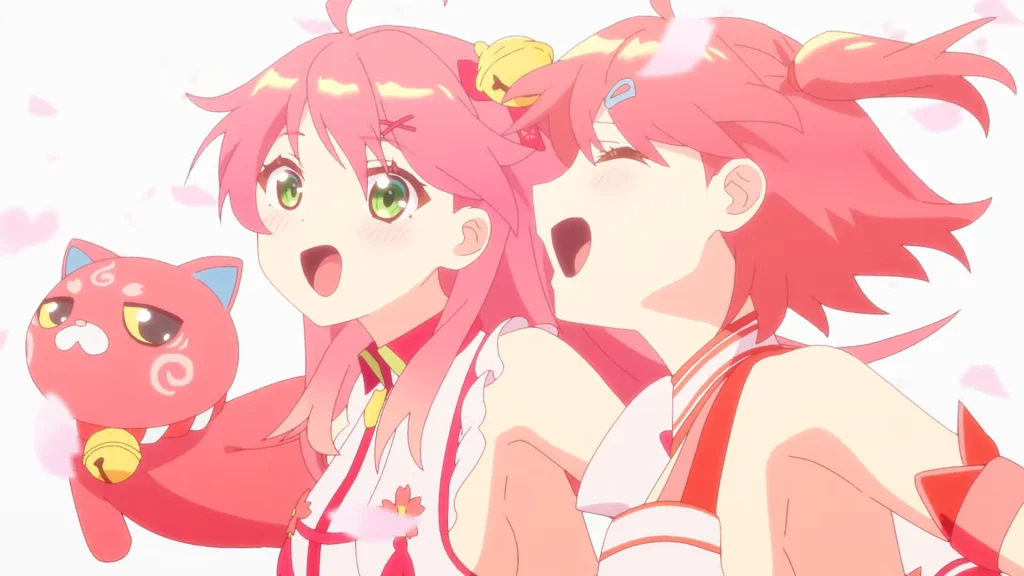
The start of October saw Oshi no Ko wrapping up its second season with a mini-arc that featured a trip to Ruby and Aqua’s home town in their previous life. It’s become more apparent to me at this point that I much prefer the show’s reflections on identities, stardom, and empathy over the “thriller” aspects of the story. While I find the latter to be appealing in its own way, I’m a bit skeptical on how it’s coming to permeate through the former. The most obvious example is how the story has decided to handle Ruby’s shift in demeanor after the reveal towards the end of the season. The ensuing trauma that’d such an incident would cause is understandable, but the choice to shift Ruby to have this unsettling “darkness” as opposed to maintaining her warmth as a character isn’t something that necessarily appeals to me.
In the context of the story, it makes a lot of sense, given what we’ve seen of Ruby and Aqua’s father. But, I do get the impression that part of what drives the narrative decision is to give the story a bit of an “edge” in its thriller aspects. Akane’s character is also a bit of an offender – we can see her caring and calm demeanor in her most common interactions, but also that there’s a part of her that gives the impression that she might have… a bit of a screw loose.
That’s not to say that I think it’s bad, in fact I think it’s pretty darn well executed. The depiction of Ruby’s “darkness” as it seeps through every other scene in B-Komachi’s newest music video gives as awfully unsettling feeling, one that I rarely feel in other media that attempts something similar. I’m still invested in seeing where the story will go at this point, regardless of what direction Aka decides to take it, even if that direction happens to be one that I doesn’t exactly align with my media priorities. It’s still a strong show with unique approach to topics that I wish to see touched more upon in media, and that’s a fine place to be.
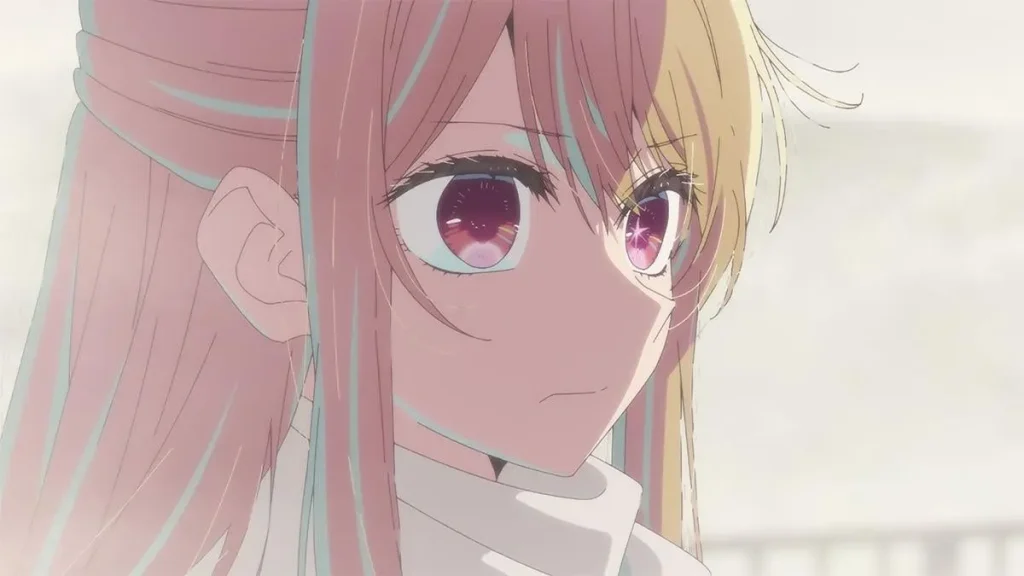
The release of Dandadan‘s 4th and 5th episodes marked the point at which the show had caught up to the movie premier, and thus, where I could start watching weekly. The battle with Turbo Granny was a bit of a mixed bag for me; on one hand the visuals were fantastic as expected, but on the other hand, the combat beats and progression of the fight itself didn’t enfold in a way that I found to be the most engaging.
I think there’s a few reasons for this: the absurdity of the motivations behind the fight (getting back Okarun’s weiner) undercuts much of the tension or dramatic weight that it would have, which usually entails that there’s some extra legwork that other aspects put in to make it engaging – whether that be through some interesting or clever twists, an engaging power system, or some deeper personal attachment that derives naturally from the characters as people. I find Dandadan to be serviceable in those departments, but nothing that stands out as particularly exceptional. We still have yet to learn much about how either of their powers work, or even how these apparitions exist in the context of the story’s universe. It’s something I can see the story building on as it goes, but for now, that’s just the impression I get.
Also, my initial worries about how the interpersonal aspects between the leads would progress seem to be somewhat founded, as much of the “romance” in the 5th episode came off as a bit clumsy. Although it’s mainly for comedic effect, I just don’t think it’s effective to depict any developments that rely on misunderstandings that don’t naturally evolve as a result of the characters, or on external forces like a random student being unusually cruel to the main character just for the other lead to stand up for them. It often comes off as contrived and disingenuous. The show could’ve also been a bit more elegant in its portrayals of its characters insecurities, as having most of their thoughts be explicitly expressed to the viewer comes off as ham-fisted.
While it does sound like I’m being a bit harsh, I don’t actually think poorly on the show, as much of the strengths of its premier are still present. But as the story progresses, I tend to give less leniency to what I would prefer to see, given that I try to be intentional with what I’m spending my time on. I’ll continue keeping up with the show, as there’s a lot of room for it to expand on what’s already been built.
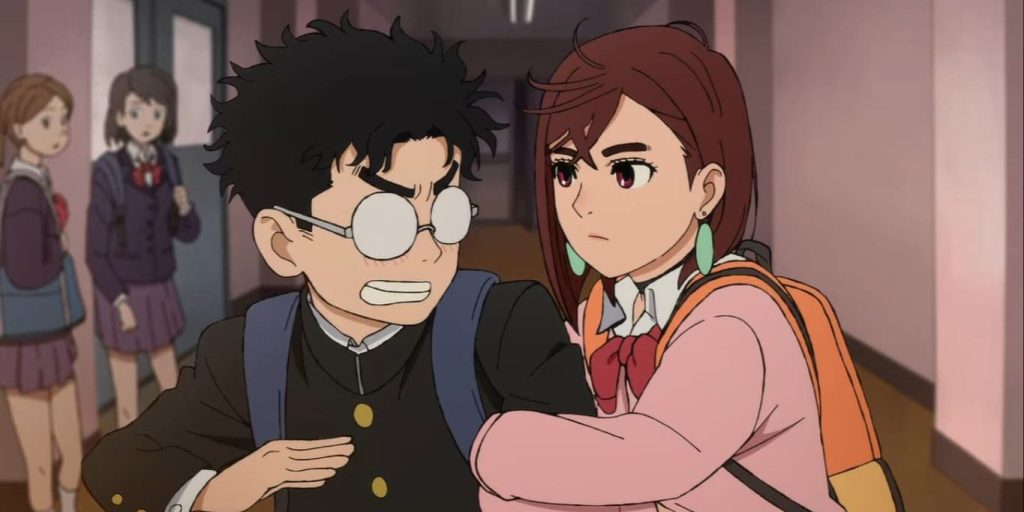
Moving on to my theater experiences for October, I journeyed to the theater less than 5 minutes away from my apartment to catch what’s essentially the two part recap movie of Bocchi, Bocchi the Rock Re: Re:. There were a few original songs and certain scenes got compressed for it to fit the runtime of a standard movie, but it’s mostly just the same content as what was in the show. And, that alone is enough to earn incredibly high marks from me, as I think the original Bocchi is one of the best anime that has released in recent years.
Throughout the years, my interest in anime tends to ebb and flow as I prioritize other mediums or aspects of my life or when the anime medium gets to be creatively dry. But, there are those rare shows that come to be an affirming reminder of everything I love about the medium- shows like Bocchi the Rock. Bocchi is wonderfully crafted, with passion that exudes from every perfectly timed joke, seemingly unnecessarily display of beautiful animation, and thoughtful moments of personal reflection. It hits on the many anxieties of adolescent while also celebrating the joys of music and band/rock culture, ultimately affirming the power that community and music has in bringing people together and becoming more than what we might believe we can be. All while being absurdly entertaining and visually rich.
Bocchi the Rock Re: Re: didn’t need to be anything more than a retread of the anime, as a 3-4 hour watch of Bocchi with an overpriced popcorn and drink was about as good of an afternoon as I could’ve asked for. Whatever awaits Kessoku Band in the future, I’ll be sure to continue cheering them on.
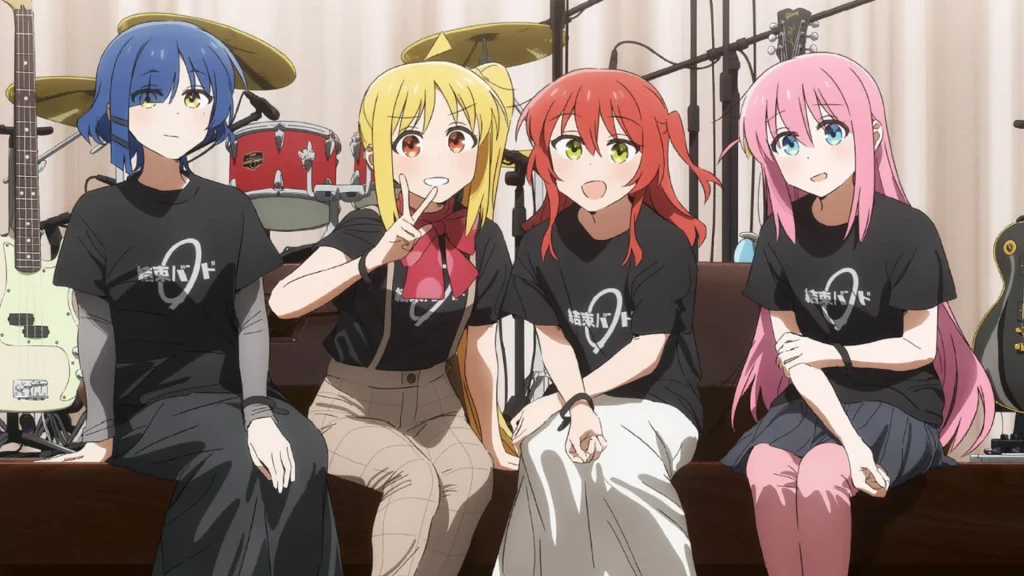
Not long after watching Bocchi the Rock: Re: Re: (and I mean like, literally the next day), I ventured out to the theaters once again with some friends to watch Look Back, a movie adaptation of Tatsuki Fujimoto’s one-shot story about creation, specifically about creating manga. My only previous exposure to Fujimoto’s works is through MAPPA’s 12 episode adaptation of Chainsaw Man, so I wasn’t too sure what to expect out of his take on such a grounded, meditative story.
Chainsaw Man is an excellent work in its own right, and contains many thoughtful reflections on dreams, the fragility of life, sacrifice, and humanity. I can see how many of those themes would relate to a story about creating manga, but it’s entirely different to be able to manifest that into an effective story that’s so different in tone and focus. Fortunately, it didn’t take long into the movie for me to realize that my fears were unfounded, as Look Back was a beautiful little film that exudes an unfiltered love for creation and understands the vulnerability and hardships that come with pursuing it as a career.
It’s crushing and cuts to the very core of creators, never once assuming we perfectly know the answers to the questions that such a path poses. Everything from the joy we share with a friend, to the immense effort that might not reward us, to the inexplicable pull that art has – everything is depicted with a warmth and quiet tenderness that deeply moves. In that moment where Fujino is running in the rain, or when she asks herself why she draws, or when Kyomoto decides to forge her own path, all of these moments contain an intimate understanding of the beauty and humanity behind creation. Fujimoto truly understands the difficulty in properly expressing all of these things, but still manages to craft such a quiet, profound little story that captures so much of these experiences.
It’s not only Fujimoto, but also every other aspect of the film that gets it. Look Back is beautifully animated, has an evocative score, is exceptionally directed, and exudes a love for the heart of the story in every frame. I could tell from the director interviews that were included in the theatrical release of the film that such an adaptation was born out of a love for animation and the source material. I’ve read multiple times that Fujimoto is one of the most significant mangaka of the modern day, and with how I’m coming to understand his sensibilities, it’s hard to disagree. It seems like Fujimoto has much more to say in his other works, and I’ll no doubt be lining up to experience them.
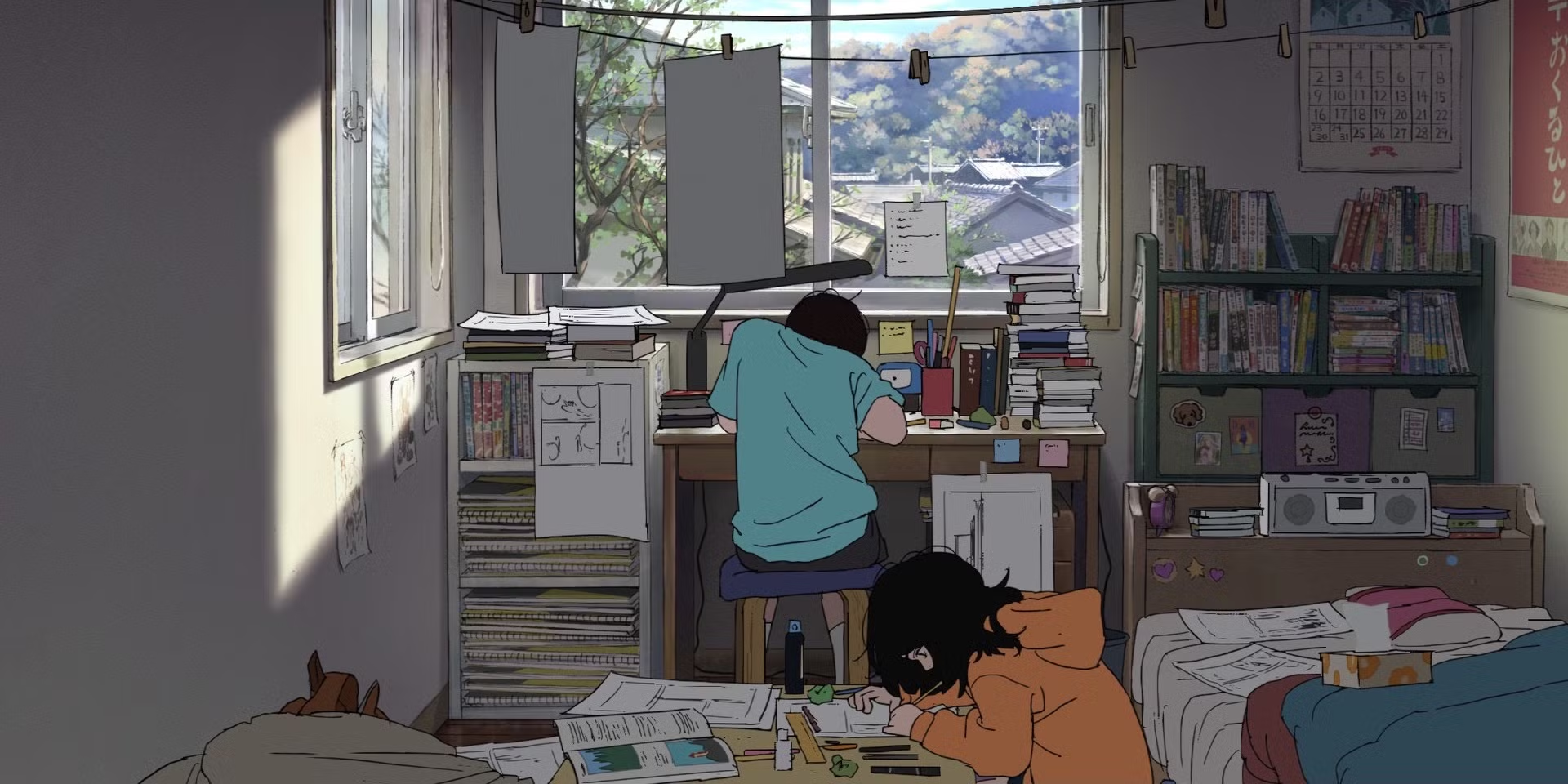
The final visit to the theaters in October was for a film that I’d seen the trailer for multiple times, but had only spontaneously decided to go and watch, The Wild Robot. Incidentally, that happened to possibly be the best decision I’ve made yet this year, as The Wild Robot was an incredible film and one of the best I’ve ever seen. I never would’ve expected this film to be as good as it was, but Dreamworks really outdid themselves here.
The Wild Robot tells a fairly predictable and simple story that even children could enjoy, but touches upon a wealth of themes underneath its visually stunning exterior: belonging, finding one’s home, found family, being a parent, agency over yourself vs what you were “meant” to do, among many others. The film seamlessly weaves these all together through it’s poignant, inspiring story that’s teeming with heart and awe-inspiring moments. I can’t really overstate how incredible these moments were, the scenes where Roz gives Brightbill a boost, or where Brightbill soars through the skies in his training. these moments truly felt infinite.
It certainly helps that the art and animation are some of the best I’ve seen, the score was incredible, and the direction just brought everything together seamlessly. All the characters evoke much of the most vulnerable, but also indomitable parts of what makes us who we are. Despite the circumstances of our birth, upbringing, or environments, the ability to become something greater than what we were “programmed” to be ultimately lies within ourselves, and in the bonds we form.
I’m brimming with gratitude that such a work exists, to affirm the power of kindness and bonds through something as transcendently crafted as this. The film evoked so many emotions throughout my viewing, ranging from feeling like crying because Fink’s loneliness hit too close to home, to being awestruck at the overwhelming feeling that came with watching the migration, to once again feeling like crying out of happiness at the warmth that the wilderness’ community showed. The Wild Robot is an absolute affirmed modern classic, a triumph in all regards and a film that I’d wholly recommend to just about anybody.
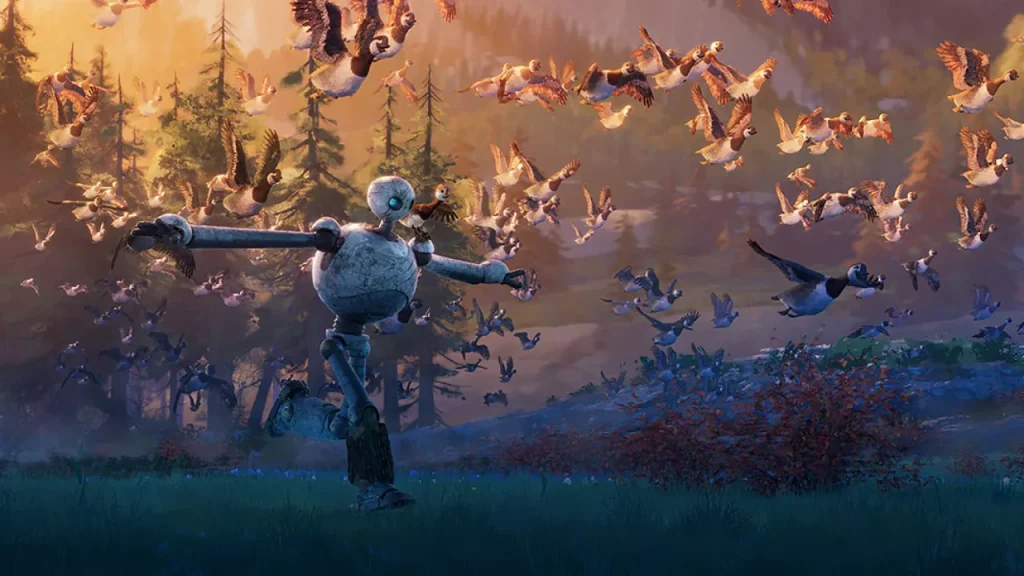
And lastly, we get to our final visit to My Liberation Notes. I wasn’t entirely expecting the direction that the show ended up taking with Gu’s “past life” and subsequent reckoning that he had to face with it, but it was one that ended up fitting more comfortably within the show’s frame of “liberation.” I want to talk a bit about this topic, given that I’ve had the entire show to contextualize it and some time to reflect. The show frames “liberation” less as the action of being freed from something specific, but rather captures the deep desire to be freed from the abstract, vague feeling of being trapped or weighed down by the heavy currents of life.
The main siblings all have aspects of their life that wear away at them: incredibly long commutes that compromise their relationships in Seoul, the stubborn Korean parents that disapprove and expect many things, unpleasant work environments and people, ghosts of the past that haunt them. It’s not only the siblings, but other characters that experience such adversities, with the show never shying away from depicting the ennui, frustrations, and disappointments of such an everyday life. With so much to be liberated from, how exactly do the characters actually become liberated?
My Liberation Notes understands that there aren’t really any easy answers to this. Characters spend much of their time on screen complaining about coworkers to friends, questioning financial decisions over a family dining table, and just generally meandering through their tiring lives. A group of characters form a club that attempts to find such answers, but do they actually find the liberation that they were looking for?
While we never quite get the perfect answer to these questions, My Liberation Notes is more concerned with depicting these searching lives as they are, rather than giving these answers. It’s in these depictions of lives as they are that the heart of My Liberation Notes lies – for all the disappointments that these lives contain, these everyday lives also contain many moments where we feel like we’re something greater, and that maybe that things aren’t all that bad. It’s those moments where you’re able to jab with a friend over a beer after work, or when your mom cooks you dinner even when you’re coming home extremely late, or when you’re just able to share a quiet moment with another, that gives us much of what we can cling onto.
The characters never truly seem to find the liberation that they were looking for, and life continues to disappoint in many ways, but in those moments where Mi-jeong looks back at her journal, or when the father steps on the gas to spontaneously try to one-up another family that said unpleasant things, we can think that hey, maybe things weren’t and aren’t all that bad, and that today, I feel… fine. Maybe that’s not the liberation that these characters were looking for, but maybe that’s okay – maybe there was something special to be found in all of that.
My Liberation Notes ended up being an intimate depiction of many everyday lives, weaved together into a tapestry of human experiences. Though it tended to meander through some individual portions of the story and certain relationships, what lies at the heart of the story was ultimately true to life in ways that can only be accurately captured by the day to day experiences that were depicted throughout the show’s entire 16 hour runtime. It reminded me much of my time growing up in a Korean household, and fills me with a hope that one day, I could also look at life with the happiness that Mi-jeong expresses in the show’s final frame.
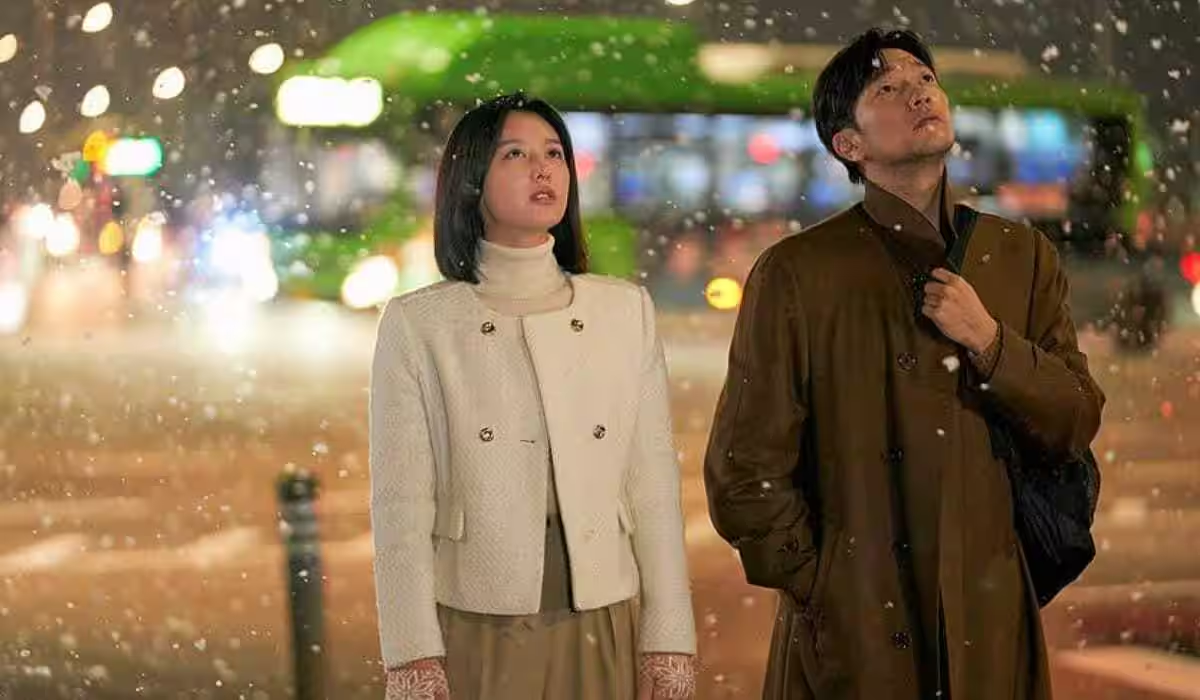
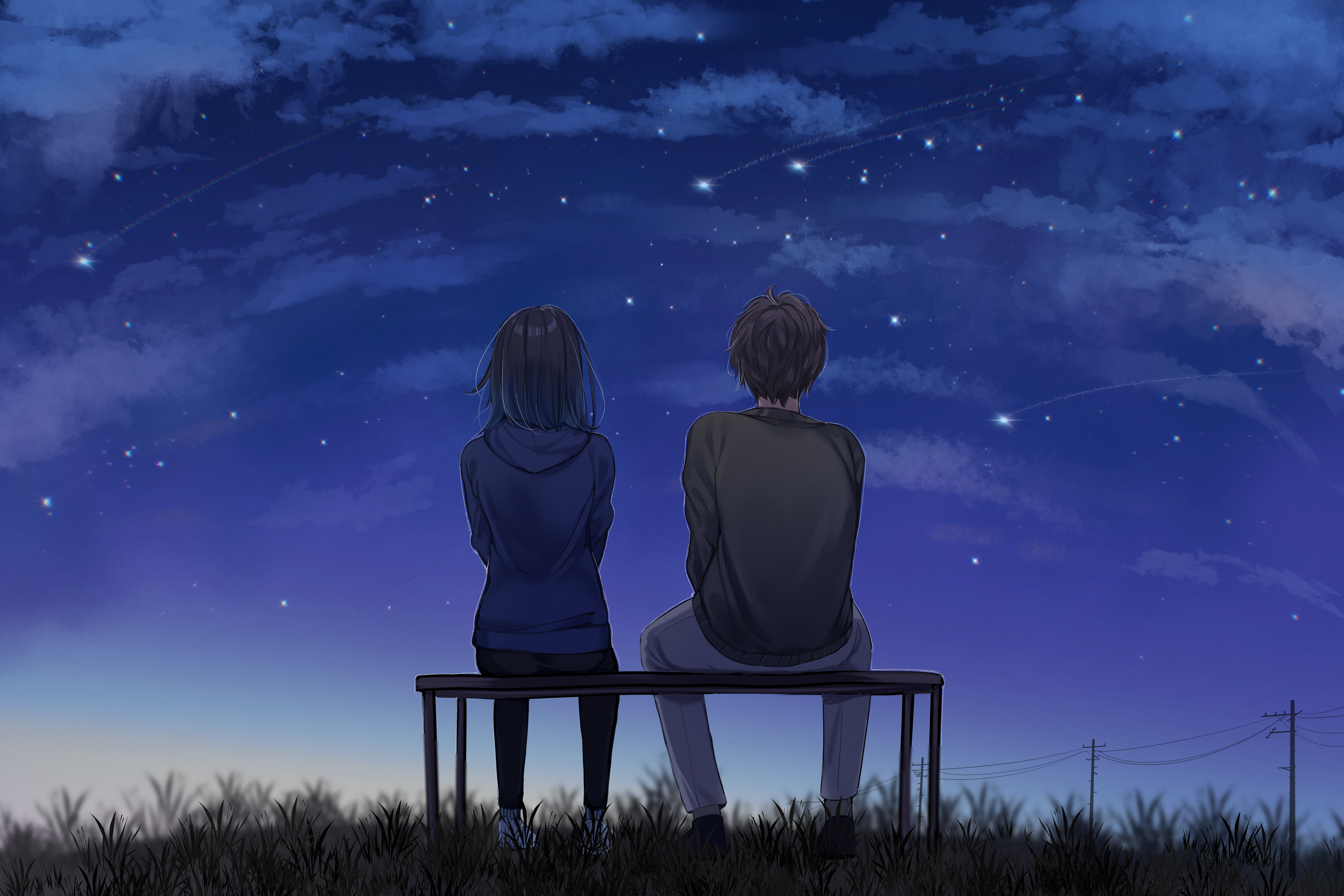
Leave a Reply